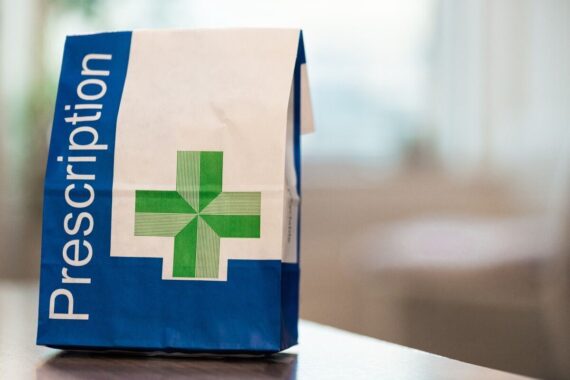Government unveils plan to tackle medicine shortages

The Government has set out a new plan to shore up the UK’s supply of pharmaceuticals, in a bid to end ongoing medicine supply shortages.
Recent shortages which have severely impacted GP prescribing have included ADHD medicines and diabetes drugs. In recent years, HRT medicine supply has also been in patchy supply.
As part of the Department for Business and Trade’s (DBT’s) recently launched Critical Imports and Supply Chains Strategy, an online portal will be set up to allow importers of essential goods – including medicines and healthcare supplies – to report disruption affecting their supplies.
The Government will then ‘work to remove these barriers wherever possible’.
In addition, a critical imports council will be established with the aim of allowing businesses to work with the government in identifying and addressing risks to essential supplies.
The DBT said supply chain ‘stress tests’ would be carried out, and the department will work with the Government Office for Science to map future scenarios and use the outputs to inform policy development.
According to the DBT, there are ‘a comprehensive range of policies and contingency plans in place’ to manage medicine supply chain disruption.
The department added that measures such as stockpiling and targeted buffer stocks are specifically designed to mitigate a specific product shortage, while the Department of Health and Social Care has procured an express freight service contract to ‘provide emergency logistics for any medical product from anywhere in the world’.
According to the new strategy document, the NHS will implement multiple supplier framework agreements to ‘improve security of supply and to manage demand spikes or individual supplier challenges’.
The Association of the British Pharmaceutical Industry welcomed the DBT’s new strategy launch.
Richard Torbett, the organisation’s chief executive, said: ‘The Government’s approach to the critical imports for pharmaceuticals will support our industry to maintain resilient supply chains, helping to ensure consistent access to medicines for UK patients.’
He added: ‘Recent global events like the pandemic have shown that our industry can manage and address global supply chain shocks, especially when working collaboratively with government, and this strategy supports our industry in doing so going forward.’
The launch of the strategy follows prolonged supply chain disruption in the pharmaceutical industry.
A recent report found that the majority of pharmacists have experienced aggression from patients due to medicine shortages, Pulse’s sister title The Pharmacist has reported.
GPs were given a directive in September not to start any new patients on ADHD medicines due to a national shortage with GPs also being asked to identify and contact all patients currently prescribed the medicines to ensure they have supplies to last.
A national patient safety alert said there were ‘supply disruptions’ of various strengths of methylphenidate, lisdexamfetamine and guanfacinedue to a combination of manufacturing issues and increased global demand.
Meanwhile, supply of glucagon-like peptide-1 receptor agonists (GLP-1 RAs) is not expected to return to normal until at least the end of 2024, the Government has confirmed.
A version of this story was first published by Pulse’s sister title The Pharmacist
Visit Pulse Reference for details on 140 symptoms, including easily searchable symptoms and categories, offering you a free platform to check symptoms and receive potential diagnoses during consultations.
Related Articles
READERS' COMMENTS [3]
Please note, only GPs are permitted to add comments to articles












Reverse Brexit and re-join the European customs union and free market? then I woke up
UK manages to shoot itself in the foot, yet again.
The MRHA operated with significant funding from the EU. Brexit obviously meant that funding was removed. The UK Government has not used our promised, plentiful ‘Brexit dividend’ to replenish any of that funding deficit, so the MRHA has been ‘restructured’ with a loss of 20% of its staff. The result: It now takes 3 years for any drug manufacturer to receive approval to produce generic medicines for the UK market. It previously took around 12 months. Unsurprisingly, no company is going to enter into generic drug production that would massively improve the current dire situation, so we remain dependent on imports and the global market… and the NHS appears to be pretty near the back of the queue.
Brilliant
MHRA even 🙂